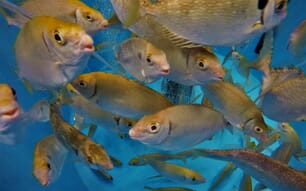“Since the unprecedented Atlantic salmon declines in 2014, public pressure on the government of Canada to take action on the recommendations of the Ministerial Advisory Committee to reverse the decline has never faltered and now we have an announcement of tangible support from DFO,” said Bill Taylor, President of ASF.
“After years of losing scientists so important to understanding the causes of environmental damage and salmon declines, we can look forward to seeing 135 scientists hired and investment in new technologies and innovation that contribute to restoration. This promises expansion of research into mortality of salmon at sea, and more collaboration nationally and internationally. ASF has been at the forefront of this type of research for several years. Our tracking research has received international recognition and other countries with declining salmon populations are following our progress and working with us to expand the technology and study throughout the North Atlantic,” continued Mr Taylor.
Investment by the government will help ensure that freshwater conditions are optimised to produce healthy numbers of wild Atlantic salmon to migrate to sea and to undertake a multi-partner approach to researching the Atlantic salmon’s migratory and behavioural patterns at sea.
This will better help researchers understand the effects on salmon of changing predator and prey behaviour and abundance, as well as the impact of changing weather patterns that may be affecting primary production, migration routes and timing of salmon runs.
Mr Taylor continued: “Survival of Atlantic salmon in the marine environment has declined significantly since the 1980s. The declines in Atlantic salmon numbers and especially the very poor runs from 2012 to 2014 emphasize the need to understand what is happening during the salmon’s migration that is contributing to such a crisis.”
Mr Taylor concluded: “ASF has been tracking salmon migrating from the Miramichi, Restigouche and Grand Cascapedia rivers since 2003 and has a well-established time series showing the migratory patterns. This research is providing important data to guide management measures, such as identifying and protecting critical habitat and controlling predation. The potential for expanding this research further into the ocean and among many partners is very exciting.”




